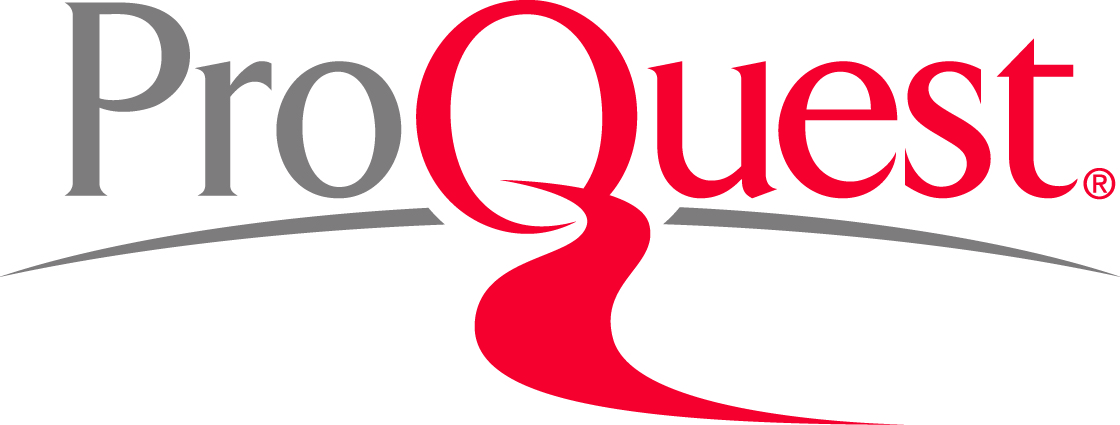Organic farming support and its current situation in Hungarian Land Policy
Abstract
Organic farming is evolving worldwide, both production and consumption growing steadily. Despite the outbreak
of this cultivation trend, Hungarian farmers apply only a small extent of the potential opportunities, so the
agricultural government wanted to increase the size of the agricultural land in organic farming in line with the
EU objectives. The National Rural Strategy for the Development of Ecological Management sets the goal for
Hungary to increase the area of organic farming to 350,000 hectares by 2020. In order to achieve these goals, the
status of organic farming should be studied in the Hungarian land policy system. The aim of the research is to
carry out a comprehensive analysis of the consequences in the land policy resulting from the support system of
organic farming. The study presents the most important rules affecting the sector and the aid for agriculture and
rural development system. The current CAP runs from 2014 to 2020, so it is particularly interesting to see what
changes can be expected in the post-2021 support system. The dissertation analyses the new regulation applicable
after 2021 on organic farming, the Regulation 2018/848 of the European Parliament and of the Council.
References
2. Agrotrend (2018) Dinaikusan fejlődik az ökológiai gazdálkodás.
https://www.agrotrend.hu/hireink/dinamikusan-fejlodik-az-okologiaigazdalkodas
[10.03.2019]
3. Alvincz J & Koltai J P (2009) Az ökológiai gazdálkodás hatékonysági kérdései,
Gazdálkodás: Scientific Journal on Agricultural Economics 53(2), pp. 156–167.
4. Bharti K P (2017) Organic farming, Current Science 112(8), pp. 45–50.
5. Biró Sz (2010) A hazai birtokpolitika a közvetlen támogatási rendszer keretei
között, Agrárgazdasági Kutató Intézet, Agrárgazdasági Információk 2010(1), pp. 1–
280.
6. Chiarabolli A (2010) Koegzisztencia jogi szabályozásának néhány aspektusa az
Európai Unióban és Olaszországban - Some aspect of the coexistence’s regulation
in the European Union and in Italy. Journal of Agricultural and Environmental Law
5(9), pp. 13–20.
7. Cros G (2017) A Régiók Európai Bizottsága véleménye – A 2020 utáni KAP,
http://www.europarl.europa.eu/meetdocs/2014_2019/plmrep/COMMITTEES/
AGRI/DV/2018/01-11/COR-2017-01038-00-00-AC-TRA_HU.pdf [01.03.2019]
8. Csák Cs (2010) Die ungarische Regulierung der Eigentums- und
Nutzungsverhältnisse des Ackerbodens nach dem Beitritt zur Europäischen
Union, Journal of Agricultural and Environmental Law 5(5), pp. 20–31.
9. Csák Cs & Jakab N (2012) The Hungarian National Report on Agriculture and the
requirements of a sustainable development Journal of Agricultural and Environmental
Law 7(12), pp. 50–78.
10. Gul A (2014) Organic Farming, Improvement of Crops in the era of Climate
Change, Springer Science+Business Media 108(2), pp. 30–45.
11. Haraszthy L (2013) Értékőrző gazdálkodás Natura 2000 területeken, Pro Vértes
Természetvédelmi Közalapítvány, Csákvár.
12. Hegyes P (2014) A vidékfejlesztés és a közvetlen kifizetések kapcsolódási pontjai a
2013. évi „KAP-reform” alapján, Journal of Agricultural and Environmental Law 9(17),
pp. 50–61.
13. kormány.hu(2019) http://www.kormany.hu/hu/foldmuvelesugyiminiszterium/
mezogazdasagert-felelos-allamtitkarsag/hirek/magyarorszagkiszamithato-
es-a-jovedelembiztonsagot-elosegito-2020-utani-kozosagrarpolitikaban-
erdekelt [26.03.2019]
14. Agrotrend (2019) https://www.agrotrend.hu/piac/agrarpenzek/atterne-azokologiai-
gazdalkodasra-igy-kerjen-tamogatast [10.03.2019]
15. Ihrig K (1968) A földár és a földérték a kapitalizmusban, MTA Közgazdasági Intézetek
Kiadványai 2, Budapest.
16. Kacz K (2006) A birtokviszonyok és az üzemi struktúra alakulását befolyásoló tényezők
vizsgálata a nyugat-dunántúli régióban, PhD Thesis, University of Pannonia Georgikon
Faculty, Keszthely.
17. Kanyó Zs (2018) Az induló ökológiai gazdálkodás sajátosságai és az ellenőrzések
tapasztalatai, a támogatás buktatói,
https://www.biokontroll.hu/wpcontent/uploads/2018/11/kanyo_zsolt_az_okog
azdalkodas_sajatossagai_a_tamogatas_buktatoi_2018-11-21.pdf [23.02.2019].
18. Kanyó Zs (2018) Decembertől újabb 12 milliárd forintos kiegészítő területalapú
támogatási keret nyílik meg az ökológiai gazdálkodók számára!, Biokultúra 29(5),
pp. 12.
19. Kovács B (2013) Ökológiai és hagyományos elvek alapján művelt szőlőültetvények
talajbiológiai állapota, MSc Dissertation, University of Pannonia Georgikon Faculty,
Keszthely.
20. KSH (2019) Biogazdálkodás.
http://www.ksh.hu/docs/hun/xstadat/xstadat_eves/i_ua001.html [10.03.2019]
21. Mezei D (2018) Van értelme áttérni a biogazdálkodásra.
https://www.agroinform.hu/palyazatok/biogazdak-tamogatasa-25256-001
[01.03.2019]
22. Nébih (2019) Ökológiai gazdálkodás, http://portal.nebih.gov.hu/-/okologiaigazdalkodas
23. Olajos I (2006) The provisions of the Rural Development in connection with the
agriculture in Hungary, Journal of Agricultural and Environmental Law 1(1), pp. 3–22.
24. Olajos I (2017) The acquisition and the right of use of agricultural lands, in
particular the developing Hungarian court practice, Journal of Agricultural and
Environmental Law 12(23), pp. 91–103, doi: 10.21029/JAEL.2017.23.91
25. Olajos I & Raisz A (2010) The provisions of the Rural Development in
connection with the agriculture in Hungary, Journal of Agricultural and Environmental
Law 5(8), pp. 39–56.
26. Olajos I & Szilágyi J E (2015) A rövid ellátási lánc-, mint a támogatott
felzárkóztatás esélye Borsod-Abaúj-Zemplén megyei hátrányos helyzetű
kistérségeiben, Észak-magyarországi Stratégiai Füzetek 12(2), pp. 71–82.
27. Olajos I (2018) The summary of the research on agricultural land as a natural
resource, Journal of Agricultural and Environmental Law 13(25), pp. 190–201, doi:
10.21029/JAEL.2018.25.190
28. Roszík P (2013) Tápanyaggazdálkodás az ökológiai gazdálkodásban,
https://www.biokontroll.hu/tapanyag-gazdalkodas-az-oekologiaigazdalkodasban/
[11.03.2019]
29. Somai M (2014) Az EU 2014-2020-ra szóló közös költségvetési kerete, különös tekintettel
a kohéziós és az agrárpolitikát érintő változásokra,
http://real.mtak.hu/17230/1/SOMAI-EU-TUKOR-2014-1.pdf [09.03.2019]
30. Szabó A (2018) A biogazdálkodás története és tendenciái, Országgyűlés Hivatala
Közgyűjteményi és Közművelődési Igazgatóság Képviselői Információs Szolgálat,
http://intra.parlament.hu/infoszolg/
31. Szab G, Fésűs I, Balázs K & Katonáné J (2003) A nemzeti agrár-környezetvédelmi
program pályázatainak elemzése: Analysis of the Competitions for Which
Appointment was Put up in the Framework of the National Programme of
Environmental Protection in Agriculture, Gazdálkodás: Scientific Journal on
Agricultural Economics 47(1), pp. 46–50.
32. Szilágyi J E, Raisz A & Kocsis B E (2017) New dimensions of the Hungarian
agricultural law in respect of food sovereignty, Journal of Agricultural and
Environmental Law 12(22), pp. 160–180, doi: 10.21029/JAEL.2017.22.160
33. Szilágyi J E & Tóth E (2017) A GMO-mentes mezőgazdaság megteremtésének
újabb jogi eszköze, Publicationes Universitatis Miskolcinensis Sectio Juridica et Politica
31(35), pp. 479–499.
34. Tanka E (2008) A vidékfejlesztés közösségi politikája és a hazai stratégia kihívásai,
Gazdaság és Jog 13(10), pp. 14–22.
35. Tanka E (2018) Korunk Földkérdése, létünk a tét. Földrablások a világban és magyar
földvédelem, Püski Kiadó, Budapest.
36. Vidékfejlesztési Minisztérium Nemzeti Akcióterv az Ökológiai Gazdálkodás
Fejlesztéséért (2014-2020)
https://videkstrategia.kormany.hu/download/3/c8/90000/Nemzeti%20Akci%C
3%B3terv%20az%20%C3%96kol%C3%B3giai%20Gazd%C3%A1lkod%C3%A1s
%20Fejleszt%C3%A9s%C3%A9%C3%A9rt_vegleges.pdf [08.03.2019]












